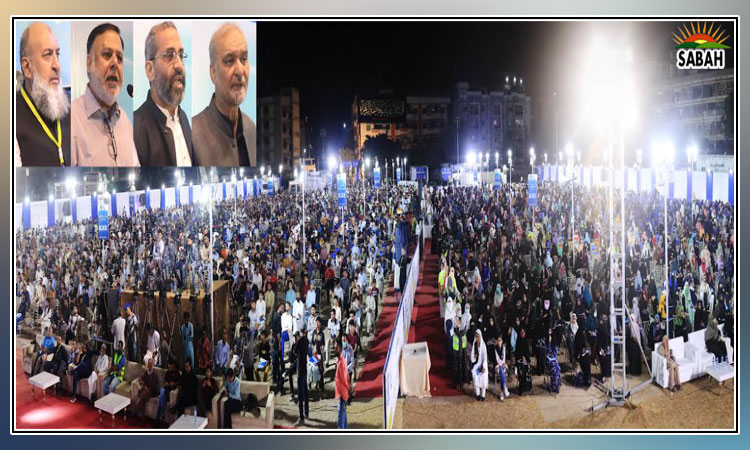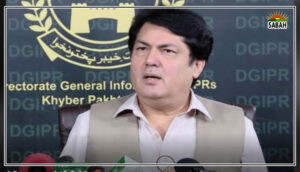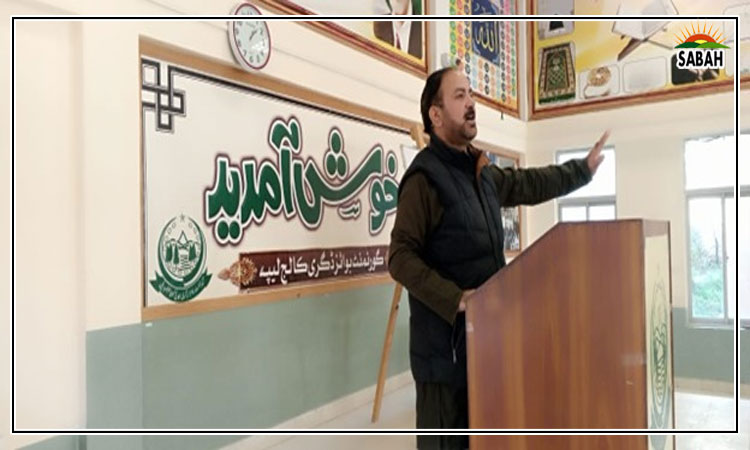Minus the strategist, the strategy derails…Muhammad Ali Ehsan
In the academic world, the subject of strategy has played an important role to enable me to share with my students my thoughts and to make reference to the many historical examples of success and failures of strategies while professing the subject of social sciences. Whether policies shape strategies or strategies drive policy has always been an intriguing question but one thing that always fascinated me has been the undeniable importance of the role that any leadership plays in making the right and correct choices both while formulating a policy or strategising a course of action.
Whether it is a nation state, any strategic institution or a business corporation, the importance of making the right decisions can never be underestimated. This is so because mistakes at the tactical and operational level can be corrected but strategic mistakes if committed live forever.
So, be it peace time or war, a nation state or a business corporation, the key players that contribute to success are the statesmen, military leaders, chief executives and managing directors who are the leaders at the centre of the events those who not only craft policies and give their guidelines for strategy formulation but also have the strength of character to pursue their political, military or business perceptions for the right and successful conclusions. What are the factors that produce successful strategies? What are the difficulties involved in successful implementation of strategies?
The answers to these questions can come from the strategists themselves. In Pakistan, in the corporate sector these strategists are the CEOs and the MDs who are heading state enterprises of strategic value. Interestingly, all of them work for results that are measurable and are also apprised at the end of each financial year. There is no strategic institution or a strategic corporation in Pakistan whose performance is not measurable and quantifiable. The success or failure of these indigenous strategic assets can squarely be attributed to the person who leads them that one important person that sits at the top of the hierarchy of leadership.
Starting an organisation is one thing but sustaining it is another and like one of my good friends always says, In todays changed world, its not the relevance of any other ism but growthism that determines the achievements of a person, organisation or a nation state. Leading any strategic organisation is not a childs play. Like a child, any CEO or a MD of a strategic organisation would speak the mother tongue but those that understand and can write the grammar are the true strategists. Our big mistake is not to distinguish between such leaders and allow them the continuity for the organisation and state to benefit.
In fact, history tells us that the very reason some societies are able to provide riches to their people while others with similar or more resources fail is a consequence of not being able to make this clear distinction. Two examples are worth quoting here. There is no doubt that the key reason behind the Pakistan Steel Mills (PSM) downfall has been widespread corruption, political recruitments and award of promotions and major leadership posts on the basis of favouritism.
At one stage, PSM had over 30,000 employees and it is fair to say that the bankrupt PSM caved in under its own weight. It was one of our strategic assets and it justified its relevance to the huge purpose it served to the society. Here we are today mourning its demise but over the years nobody could assess its growth and its priorities? Was its annual performance not measurable, quantifiable? The fall from grace was not sudden. There is something wrong with how its non-compliance with the achievable goals was misjudged, compliance ignored and remedy delayed. Compare this to the performance of PakArab Refinery Limited (PARCO) which has been a profitable organisation since its creation but is giving ten times more profit since the last two years under its current leadership.
There is no magic wand that PARCO has and the PSM didnt have. There is only the process of strategy making, deep thinking, anguishing, developing, articulating and then conducting a strategy. When organisations do well, it gives us a great opportunity to distinguish the great strategists from the herd of strategists. Let me clearly say that organisational leaders appointed on the basis of favouritism, like some of them were in the PSM, are essentially conformists; and all conformists are unimaginative and that is why they are part of the herd and can speak the mother tongue but can never understand the grammar of it.
Only nonconformists are the imaginative leaders who have the capability of unlocking a strategy and through their strategic concepts can repair and guide an organisation and contribute to growthism. This brings me to one last point. In 1849, a French scholar and writer, Jean-Baptiste Alponse Karr wrote, plus ca change, plus cest la meme i.e. the more things change the more they stay the same. Since then it has been used as a famous proverb not only to describe the process of human evolution but also the evolution of business enterprises and corporations. In the context of the corporate sector, I think the fundamental question that this statement raises is about the development and conduct of business strategy, about having a course of action and no more the strategy, the strategy planter the strategist.
We live in a turbulent time and it is important that our self-reliance is not only in defence capabilities but also our economic strength. Under the current difficult circumstances, we keep looking for solutions abroad while they exist in Pakistan. If we need to become our own masters, its not the patronage of the outside world that we need. What we need to do is clearly distinguish who are the CEOs and MDs that are leading their organisations to growthism and greater heights and also those who are contributing to downfall of their organizations appointed on the basis of favouritism, unimaginative whose only job is to conform and cement the status-quo in other words following Jean-Baptistes dictate of keeping things the same.
If Pakistan has to develop and grow then all those CEOs and MDs that are doing well must be allowed to continue in their positions to create the strategic realities they have planned so that they can oversee the institutionalisation of their strategies in the organisation they lead. This will create a win-win situation both for their organisation as well as for Pakistan
Courtesy The Express Tribune












